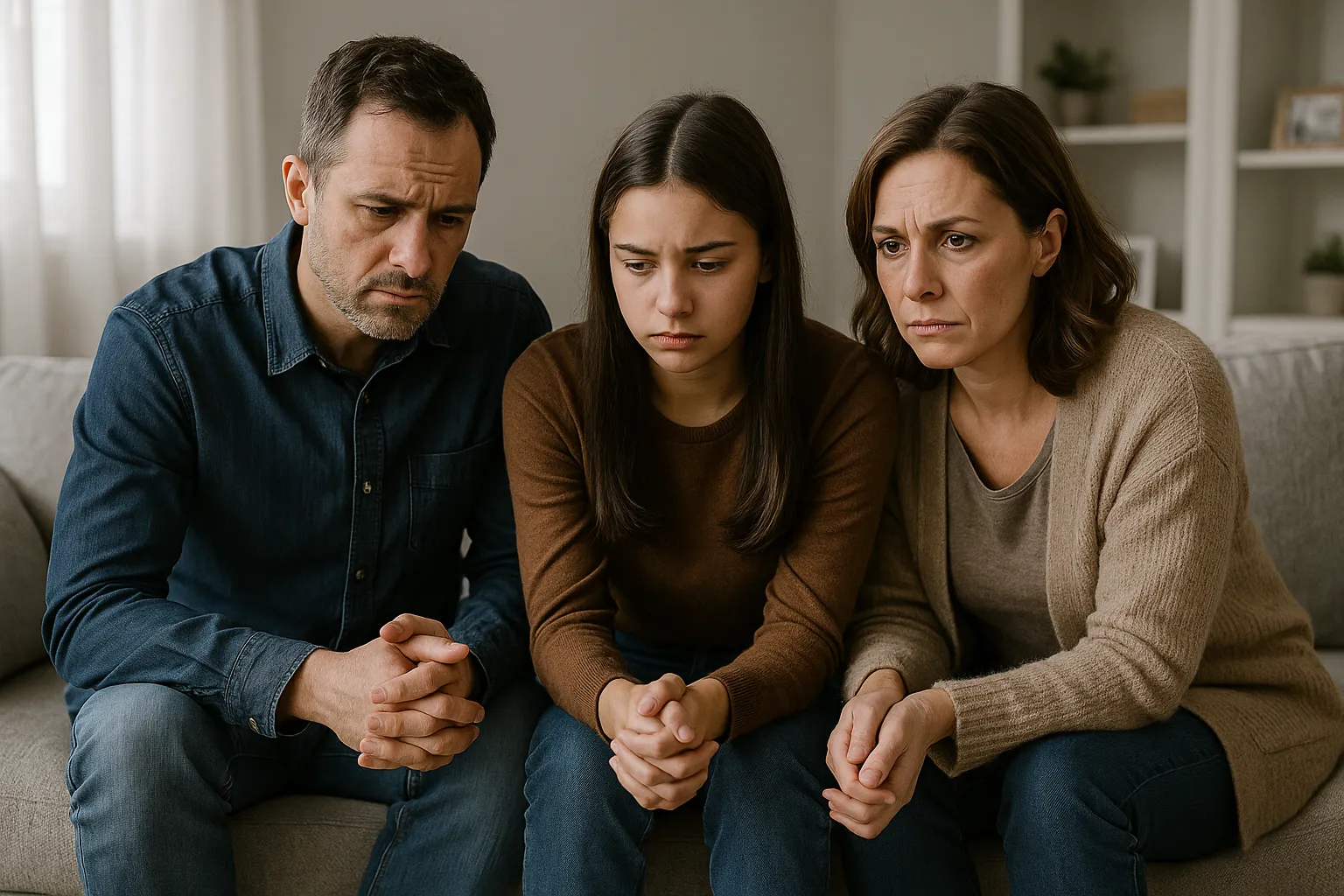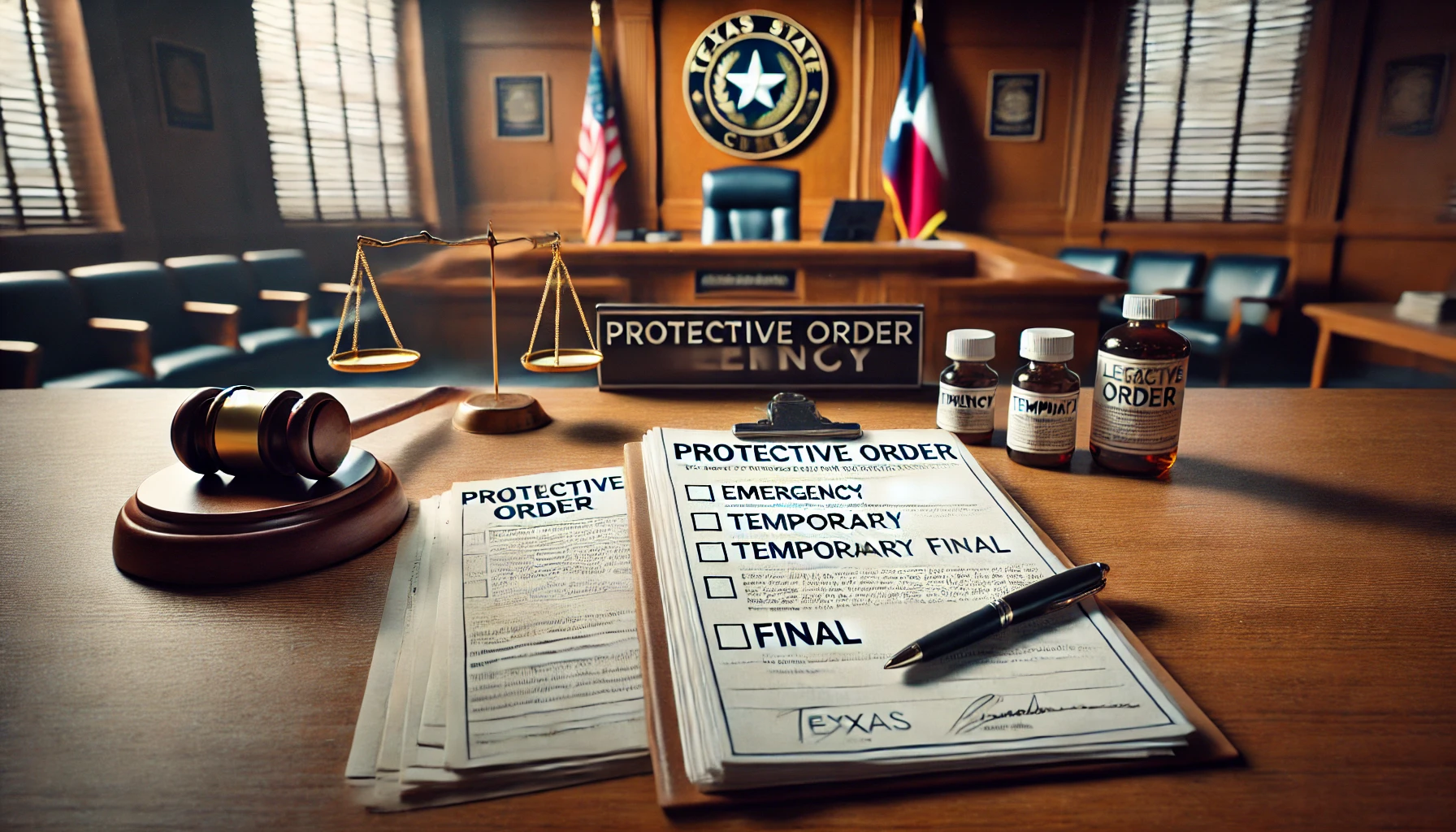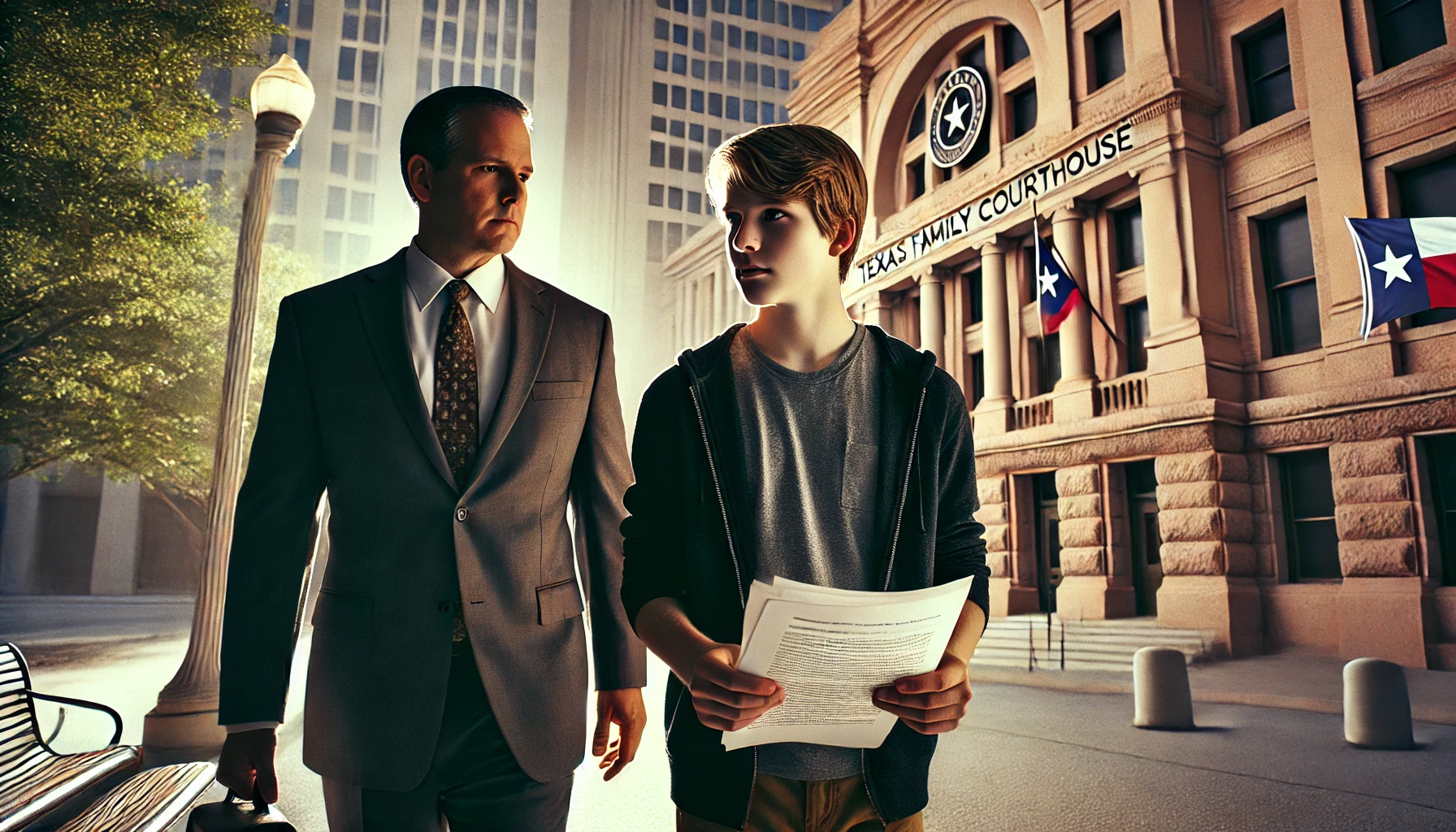

Protective Orders in Domestic Violence Cases

Protective Orders in Domestic Violence Cases
In Texas, protective orders are among the most powerful tools courts use to prevent family violence. But for those on the receiving end — especially individuals who’ve been falsely accused or involved in emotionally charged disputes — these orders can feel overwhelming, invasive, and deeply life-altering.
Whether you're facing a protective order after an arrest, trying to navigate one during a custody dispute, or simply want to understand how they work, this guide is for you.
This comprehensive beginner’s guide walks you through the types of protective orders, how they're issued, what they mean for your day-to-day life, and most importantly — how to respond and protect your rights. We’ll also explore county-by-county differences across Harris, Fort Bend, Galveston, and Brazoria, where enforcement policies vary more than many people realize.
What Is a Protective Order?
A protective order is a court-issued order prohibiting one person from contacting or approaching another, usually due to allegations of family violence, dating violence, stalking, or harassment.
Protective orders can:
- Prevent you from contacting the alleged victim
- Require you to move out of your home
- Suspend your right to see your children
- Restrict your access to firearms
- Appear in background checks and public court records
Unlike a criminal conviction, protective orders can be issued without a trial and even before you’ve been found guiltyof anything.
(See: Types of Protective Orders in Texas Domestic Violence Cases)
How Protective Orders Are Issued in Texas
Protective orders may be issued:
- Automatically after an arrest (Magistrate’s Emergency Protective Order)
- Based on a sworn application filed in civil court
- After a hearing where both parties appear (Final Protective Order)
In How Protective Orders Are Issued in Texas Courts, we explain how the process works step by step — from arrest, to filing, to court review. The process can move quickly, and judges often err on the side of caution.
Protective orders can be:
- Temporary (up to 20 days)
- Emergency (31 to 91 days)
- Final (up to 2 years or more in extreme cases)
In some counties, such as Galveston and Fort Bend, judges issue temporary orders within 24 hours of an allegation. That’s why early legal intervention is essential.
What to Do If You’re Served with a Protective Order
Being served with a protective order in Texas carries immediate legal consequences, even if no criminal charges have been filed.
In How to Respond if You’re Served a Protective Order, we walk through:
- What to do (and not do) after service
- Why you must follow the order to the letter — even if you disagree with it
- How to prepare for the final hearing
- How to avoid violations that can lead to new charges
Your attorney can fight the order or request modifications, but you must act fast — typically within 14 to 20 days of being served.
What Happens If You Violate a Protective Order?
Protective orders are civil in nature — but violations are criminal offenses in Texas.
In What Happens If You Violate a Protective Order?, we explain:
- First violations can lead to Class A misdemeanor charges (up to 1 year in jail)
- Repeated or aggravated violations can become felonies
- You can be arrested without a warrant if the violation is reported
- Even accidental or indirect contact (e.g., replying to a message) may count
Don’t assume the protected person’s consent matters. Only the judge can change the order.
Can You Fight a Protective Order?
Yes — and you should, especially if the order is based on false or exaggerated claims.
In Can You Fight a Protective Order in Texas?, we show how defense attorneys:
- Challenge the order at the final hearing
- Cross-examine the accuser and expose inconsistencies
- Present witness testimony and documentary evidence
- Argue for modification or dismissal
Even if a final order is entered, it can sometimes be modified or terminated after one year.
How Protective Orders Affect Child Custody and Divorce
Protective orders are frequently used in family law battles, and even a temporary order can dramatically affect custody rights.
In How Protective Orders Impact Child Custody and Divorce, we explain:
- Courts presume that joint custody is not in the child’s best interest if a parent has committed family violence
- Orders may prevent unsupervised visitation or deny access altogether
- Divorce judges often grant one party exclusive use of the home and parenting time
Even without a criminal conviction, a protective order may tip the balance in custody and divorce proceedings.
How Protective Orders Affect Housing and Employment
Protective orders don’t just impact your legal rights — they affect where you can live and work.
In How Protective Orders Affect Housing and Employment, we explore:
- How protective orders appear on public records and background checks
- Why landlords may deny your housing application
- How employers — especially those in law enforcement, healthcare, or education — may suspend or fire employees with active orders
- Licensing boards that may reject or revoke credentials based on civil orders alone
You don’t need a conviction to face these consequences. That’s why it's critical to respond proactively.
Can Protective Orders Be Expunged or Sealed?
Many people mistakenly believe that once a protective order expires, it disappears from their record. Unfortunately, that’s not usually true.
In Can Protective Orders Be Expunged or Sealed?, we explain:
- Protective orders generally cannot be expunged unless they were filed in error
- Sealing or vacating the record may be possible only through special motions
- Final orders — even dismissed ones — often remain in court databases and background checks
Early defense work and a strong hearing strategy can prevent a damaging order from being entered in the first place.
What Happens After a Protective Order Expires?
Once a protective order ends, the legal restrictions may disappear — but the consequences don’t always go away.
In What Happens After a Protective Order Expires?, we discuss:
- Whether contact can resume safely
- How long the record remains visible
- The potential for renewal or extension if the protected party claims ongoing fear
- When and how to file for early termination or modification
In many Texas counties, expired orders still influence future family law, probation, and firearm decisions.
Protective Orders Across Counties: Harris, Fort Bend, Galveston, and Brazoria
Texas law is statewide — but enforcement varies.
In Protective Orders Across Counties: Local Enforcement Differences, we break down:
- Harris County: Structured enforcement, strict bond conditions, and multiple domestic violence dockets
- Fort Bend County: Highly structured process, less flexibility in final orders, fast-moving hearings
- Galveston County: Conservative court culture, longer protective orders, strict violation enforcement
- Brazoria County: More flexibility, better outcomes possible with early legal representation and co-parenting agreements
Where your case is filed matters. A protective order in one county may be dismissed — while in another, it becomes permanent.
Final Thoughts: A Protective Order Is Not the End of the Story
Protective orders in Texas are serious. But they are also defensible, negotiable, and in some cases, dismissible — especially with the right attorney.
At Walker Law Office, attorney Mekisha Walker has helped clients in Harris, Fort Bend, Galveston, and Brazoria Counties respond to protective orders, avoid violations, and protect their rights. As a former prosecutor, she knows what courts are looking for — and how to challenge unjust or unnecessary orders.
Whether you're fighting for your children, your job, or your reputation, don't face this process alone.
Call (713) 228-2611 or visit https://www.walkerlawhouston.com/contact to speak with a lawyer near you today.

Protective orders come in several forms in Texas domestic violence cases. This beginner’s guide explains the differences between emergency, temporary, and final orders—and how they impact your rights.
Read More...
Protective orders in Texas can affect child custody, visitation, and divorce outcomes. This guide explains how family courts handle domestic violence allegations during custody disputes.
Read More...

